Filter by

Entertainment-Education Behind the Scenes: Case Studies for Theory and Practice
This Open Access book tracks the latest trends in the theory, research, and practice of entertainment-education, the field of communication that incorporates social change messaging into entertaining media. Sometimes called edutainment, social impact television, narrative persuasion, or cultural strategy, this approach to social and behavior change communication offers new opportunities includi…
- Edition
- -
- ISBN/ISSN
- 978-3-030-63614-2
- Collation
- -
- Series Title
- -
- Call Number
- -
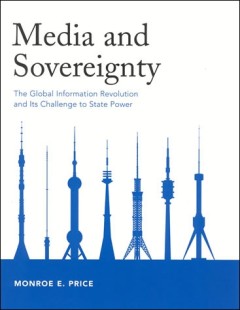
Media and sovereignty :
Media have been central to government efforts to reinforce sovereignty and define national identity, but globalization is fundamentally altering media practices, institutions, and content. More than the activities of large conglomerates, globalization entails competition among states as well as private entities to dominate the world's consciousness. Changes in formal and informal rules, in addi…
- Edition
- -
- ISBN/ISSN
- 9780262281904
- Collation
- -
- Series Title
- -
- Call Number
- -
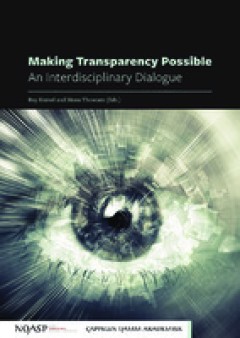
Making Transparency Possible: An Interdisciplinary Dialogue
Each year local and national economies throughout the world lose billions of dollars through so-called illicit financial flows. Conservative estimates indicate that over a billion dollars are diverted illegitimately out of countries in the Southern Hemisphere every year. This diversion of revenue reinforces poverty while facilitating the concentration of authority in the hands a select few thro…
- Edition
- Ed. 1
- ISBN/ISSN
- 9788202637309
- Collation
- 323
- Series Title
- -
- Call Number
- 302.2 MAK m
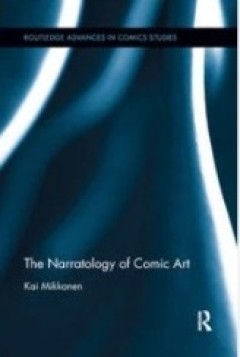
The Narratology of Comic Art
By placing comics in a lively dialogue with contemporary narrative theory, The Narratology of Comic Art builds a systematic theory of narrative comics, going beyond the typical focus on the Anglophone tradition. This involves not just the exploration of those properties in comics that can be meaningfully investigated with existing narrative theory, but an interpretive study of the potential in …
- Edition
- -
- ISBN/ISSN
- 9781315410128
- Collation
- 324 halaman
- Series Title
- -
- Call Number
- 700 MIK n
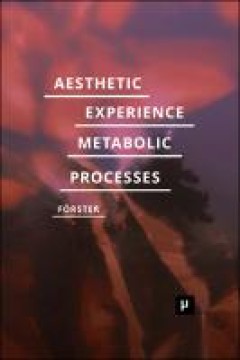
Aesthetic Experience of Metabolic Processes
Simultaneously speculative and inspired by everyday experiences, this volume develops an aesthetics of metabolism that offers a new perspective on the human-environment relation, one that is processual, relational, and not dependent on conscious thought. In art installations, design prototypes, and researchcreation projects that utilize air, light, or temperature to impact subjective experience…
- Edition
- Ed. 1
- ISBN/ISSN
- 9783957961815, 9783957961808
- Collation
- 182
- Series Title
- Future Ecologies, 2
- Call Number
- 302.23 FOR a
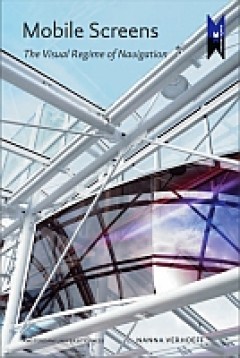
Mobile Screens: The Visual Regime of Navigation
Nanna Verhoeff’s new book is a must for anybody interested in visual culture and media theory. It offers a rich and stimulating theoretical account of the central dimension of our contemporary existence – interfacing and navigating both data and physical world through a variety of screens (game consoles, mobile phones, car interfaces, GPS devices, etc.) In the process of exploring these new…
- Edition
- Ed. 1
- ISBN/ISSN
- 9789089643797
- Collation
- 212
- Series Title
- MediaMatters, 8
- Call Number
- 526 VER m
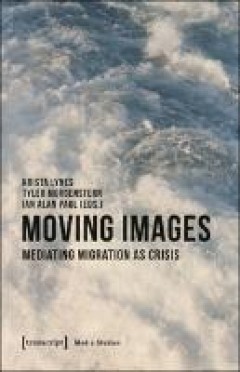
Moving Images : Mediating Migration as Crisis
In recent years, spectacular images of ruined boats, makeshift border camps, and beaches littered with life vests have done much to consolidate the politics of movement in Europe. Indeed, the mediation of migration as a crisis has worked to shore up various forms of militarized surveillance, humanitarian response, legislative action, and affective investment. Bridging academic inquiry and artis…
- Edition
- -
- ISBN/ISSN
- 9783839448274
- Collation
- -
- Series Title
- -
- Call Number
- 070.4

Civic Media Literacies: Re-Imagining Human Connection in an Age of Digital Ab…
Civic life today is mediated. Communities small and large are now using connective platforms to share information, engage in local issues, facilitate vibrant debate, and advocate for social causes. In this timely book, Paul Mihailidisexplores the texture of daily engagement in civic life, and the resources—human, technological, and practical—that citizens employ when engaging in civic actio…
- Edition
- -
- ISBN/ISSN
- 9781315526058
- Collation
- -
- Series Title
- -
- Call Number
- -
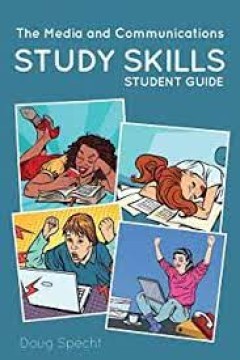
The Media and Communications Study Skills Student Guide
"All the tips, ideas and advice given to, and requested by, MA students in Media and Communications, are brought together in an easy-to-use accessible guide to help students study most effectively. Based upon many years of teaching study skills and hundreds of lecture slides and handouts this introduction covers a range of general and generic skills that the author relates specifically towards …
- Edition
- -
- ISBN/ISSN
- 9781912656592
- Collation
- -
- Series Title
- -
- Call Number
- -
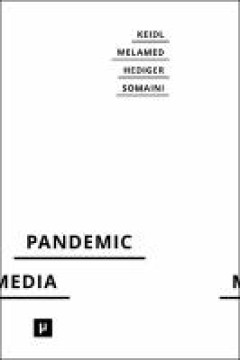
Pandemic Media: Preliminary Notes toward an Inventory
With its unprecedented scale and consequences the COVID-19 pandemic has generated a variety of new configurations of media. Responding to demands for information, synchronization, regulation, and containment, these “pandemic media” reorder social interactions, spaces, and temporalities, thus contributing to a reconfiguration of media technologies and the cultures and polities with which the…
- Edition
- Ed. 1
- ISBN/ISSN
- 9783957960092, 9783957960085
- Collation
- 380
- Series Title
- Configurations of Film
- Call Number
- 302.03 PAN p
 Computer Science, Information & General Works
Computer Science, Information & General Works  Philosophy & Psychology
Philosophy & Psychology  Religion
Religion  Social Sciences
Social Sciences  Language
Language  Pure Science
Pure Science  Applied Sciences
Applied Sciences  Art & Recreation
Art & Recreation  Literature
Literature  History & Geography
History & Geography